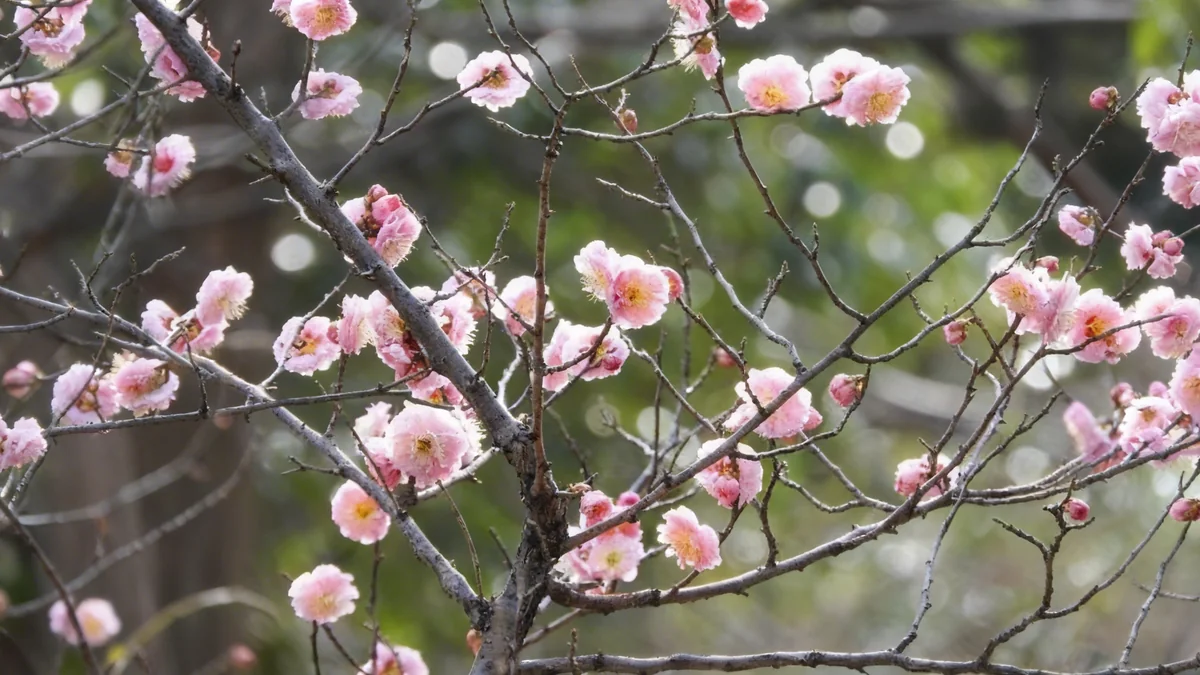Hawaii's tourism sector is experiencing a significant shift in traveler preferences, moving away from traditional high-end luxury towards what is now termed 'anti-luxury' travel. This trend, confirmed by recent national research, indicates that nearly half of American travelers are seeking experiences that prioritize authenticity and value over overt opulence and excessive fees. The change presents challenges for Hawaii, which has historically focused on attracting high-spending visitors.
Key Takeaways
- 43 percent of American travelers are interested in anti-luxury travel.
- This preference rises to 59 percent among Gen Z and 53 percent among Millennials.
- Hawaii's current strategy targets high-income travelers, who are less interested in anti-luxury experiences.
- Travelers seek meaningful experiences, cultural connection, and transparent pricing.
- Wellness travel, focusing on natural experiences, represents a significant opportunity.
The Rise of Anti-Luxury Travel
New data from The State of the American Traveler study highlights a growing demand for anti-luxury travel. This concept is not about 'roughing it.' Instead, it focuses on seeking substance and genuine experiences rather than status symbols or superficial grandeur. Travelers still desire comfort and quality, but they want these elements to feel authentic and earned.
For example, a couple might choose to spend less on a resort room to afford a local guide. A family might prioritize meaningful daytime activities over expensive, flashy evening entertainment. This shift reflects a desire for trips that offer genuine connection and cultural immersion.
Key Statistic
The State of the American Traveler study shows that 43 percent of Americans find anti-luxury travel appealing. This figure increases significantly among younger generations: 59 percent of Gen Z and 53 percent of Millennials share this preference.
Generational Preferences and Upscale Touches
While younger travelers are leading the anti-luxury trend, they still value quality. The study found that 65 percent of Gen Z travelers appreciate upscale touches, but these must feel authentic. This means that value and meaning are more important than expensive finishes or excessive glamour.
Many travelers express feeling that Hawaii's travel experience has become overly transactional. They report a sense that quality has been replaced by high markups and numerous fees. Visitors want Hawaii to feel worthwhile again, expressing a desire for experiences that justify the cost.
Hawaii's Misaligned Strategy
Hawaii's current tourism strategy primarily targets high-income visitors. However, this approach appears to be misaligned with evolving traveler preferences. The study revealed that only 37 percent of travelers earning over $200,000 annually are drawn to anti-luxury travel. In contrast, 52 percent of travelers earning under $50,000 a year express interest in such experiences.
This creates a significant gap between what Hawaii markets and what a large segment of travelers actually desires. The islands' focus on 'premium visitors' may be alienating the very group that values Hawaii's natural beauty, cultural heritage, and authentic connections the most. These are the visitors who historically formed the foundation of Hawaii's tourism base.
Historical Context
For many years, Hawaii has been a premier destination for luxury travel. Its focus on attracting high-spending tourists has shaped its hospitality sector. However, rising costs and a perceived lack of authentic value are now leading many visitors to reconsider their travel choices.
"Hawaii has been placing a heavy bet on the second group [high earners]. The math is brutal: Hawaii markets to the 37 percent who don’t want what it offers, while alienating the 52 percent who do."
Visitor Feedback on Costs
Consistent feedback from visitors indicates dissatisfaction with escalating costs. Stories about "Hawaii's new fees cross the line" and "the vanishing middle class of Hawaii travel" show a growing concern. Travelers are not necessarily rejecting quality, but they are rejecting the idea that quality comes with an unreasonable price tag.
This mismatch means Hawaii is targeting a group less likely to appreciate its core offerings. Meanwhile, those who cherish Hawaii's genuine experiences are increasingly priced out. This situation has led to a growing sentiment that while visitors still love the islands, they are unhappy with the current state of travel there.
Wellness Travel: A Missed Opportunity
Wellness travel presents a significant opportunity for Hawaii, yet it remains largely untapped. A study linked by Future Partners found that 65 percent of travelers consider wellness important when planning trips. Furthermore, 43 percent actively seek experiences that support their physical, mental, or spiritual health.
This trend is particularly strong among Millennials and women, demographics that are crucial to Hawaii's visitor base. Hawaii naturally offers many wellness activities, such as sunrise swims, hikes through native forests, and access to local produce. These experiences are often part of daily life on the islands.
- Natural Wellness: Sunrise swims, forest hikes, fresh local food.
- Cultural Connection: Opportunities for quiet reflection, connection to nature.
- Target Demographics: Especially appealing to Millennials and women.
Integrating Wellness into Travel
Currently, many hotels in Hawaii treat wellness as an extra charge, typically through spa services. Anti-luxury travelers, however, want wellness to be an integrated part of their trip, not an add-on. Hotels that offer complimentary sunrise yoga or guided trail access, rather than expensive spa treatments, are likely to appeal more to this growing segment of travelers.
This approach could redefine Hawaii's luxury experience. It would align with the evolving preferences of travelers who seek authentic, meaningful experiences that enhance their well-being. This shift could secure Hawaii's place as a leading destination for the next decade of travel.
The Comfort Correction in Air Travel
Changes in airline loyalty programs and seat configurations also reflect this broader shift. Many travelers are now seeking comfort in the middle ground, opting for premium economy or extra legroom options. They appreciate transparency about what they receive for the price they pay.
These travelers often choose smaller brands that they perceive as more honest and value-driven. They are willing to pay for comfort, but they expect clear communication and a sense of fairness in return. This trend in air travel mirrors the anti-luxury sentiment seen in destination choices.
Airline Trends
Airline passengers are increasingly choosing premium economy and extra legroom seats. They prioritize transparency and value for money over traditional first-class opulence, reflecting a broader 'comfort correction' in travel.
What Younger Travelers Are Signaling
Gen Z and Millennials are at the forefront of this change. As noted, 59 percent of Gen Z and 53 percent of Millennials prefer anti-luxury travel. Despite this, 65 percent of Gen Z still value upscale amenities if they feel authentic.
Gen Z travelers take fewer trips than other generations, averaging 3.3 trips in the coming year. However, they are highly optimistic about their financial future, with 63 percent expecting to be better off next year. This contrasts with 32 percent of Boomers who share the same optimism. This means younger travelers are not broke; they are selective.
When Gen Z and younger Millennials visit Hawaii, they want genuine experiences that align with their values. They dislike pretense and are quick to share their disappointments online. Conversely, they reward authenticity when they find it.
Winning Back Visitors
Anti-luxury travel is a direct response to feeling detached or exploited by high costs. Destinations and hotels that prioritize human connection are likely to succeed. This includes offering friendly check-in staff, thoughtful amenities, and honest communication.
The goal is not necessarily cheaper rooms. It is about ensuring that the experience and the price feel balanced and fair. A recent survey shows that 47 percent of Americans expect a U.S. recession within six months, an increase of nine points from last year. Despite this economic caution, 59 percent still plan to prioritize leisure travel in their budgets.
This combination of caution and determination means people will continue to travel, but they will be highly critical of value. For Hawaii, this indicates that visitors are not abandoning the islands. They are simply making different choices. They seek transparency, respect, and experiences that evoke the Hawaii they remember.
Practical Steps for Hawaii
To thrive in the anti-luxury era, Hawaii's tourism industry must adapt. This means shifting marketing efforts from aspiration to truth. Investments should focus on improving the service experience, not just building new structures. Simplifying costs and clarifying fees will also be crucial.
Visitors want to feel part of something meaningful, not just a revenue target. Small, impactful changes can make a difference. These include authentic greetings, flexible cancellation policies, and honest communication about local conditions, crowds, and truly local experiences. These elements are the new luxuries and often cost very little.
Traveler Tips for a Better Hawaii Experience
Visitors planning a trip to Hawaii can also adapt their approach to find genuine experiences:
- Travel during shoulder seasons: Consider visiting between April and June or September and November to avoid peak crowds and potentially find better deals.
- Choose mid-tier accommodations: Select places that prioritize service and local appeal over luxury branding.
- Use points wisely: Maximize loyalty points for flights or stays, and then spend on local, authentic experiences.
- Focus on local activities: Seek out activities that connect you with the culture and natural beauty of the islands.
As one traveler noted about a recent South Pacific trip, choosing a simple, clean beachfront rental for a slower pace and then splurging on a resort with 'heart' showed that different types of stays can all deliver value. The point is not to reject high-end options entirely, but to choose them when they genuinely add meaning to the trip.
The Broader Implications
The anti-luxury movement is not a rejection of Hawaii itself. It represents a reset of expectations among travelers. It signals a desire for purposeful trips. Given its natural beauty and rich cultural heritage, Hawaii has the potential to be a model for this new travel paradigm. However, this depends on the industry's willingness to listen and adapt to what visitors are truly seeking.





